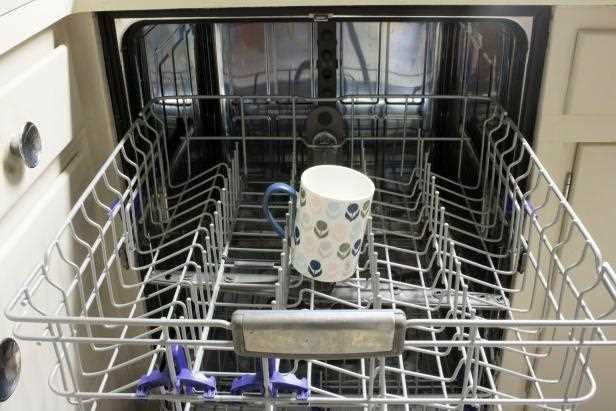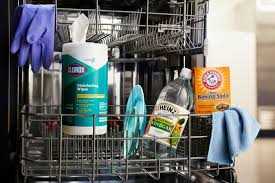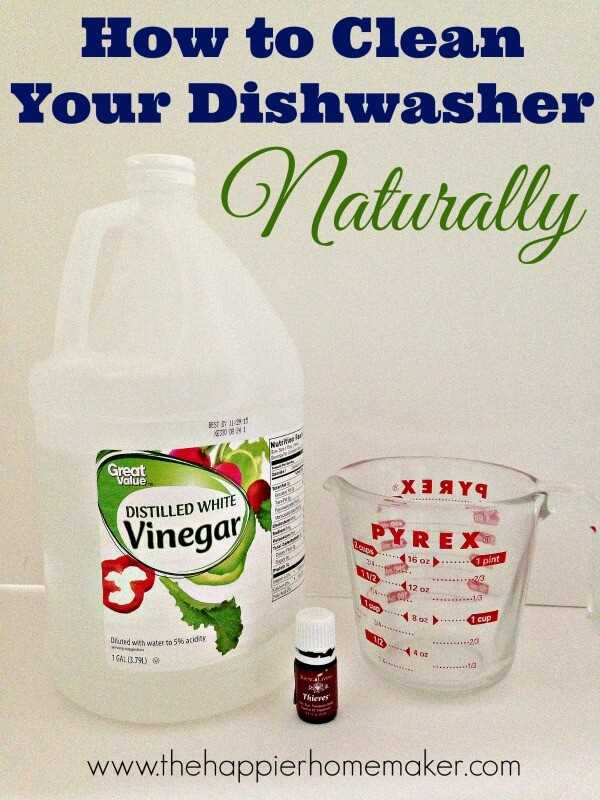




Dishwashers are essential appliances in modern kitchens, saving us time and effort by automating the task of washing dishes. However, over time, dishwashers can accumulate residue, grease, and odors, resulting in inefficient cleaning performance and unpleasant smells. That’s where vinegar comes in.
Vinegar is a natural and versatile cleaning agent that can be used to tackle various household cleaning tasks, including cleaning your dishwasher. Whether you want to remove build-up, eliminate odors, or improve the overall efficiency of your dishwasher, vinegar can be your ultimate cleaning solution.
In this comprehensive guide, we will walk you through the step-by-step process of cleaning your dishwasher with vinegar. We will cover the dos and don’ts, provide helpful tips and tricks, and answer frequently asked questions about using vinegar as a dishwasher cleaner. So let’s get started and transform your dishwasher into a sparkling clean powerhouse!
Why Vinegar is the Best Cleaner for Your Dishwasher
When it comes to cleaning your dishwasher, vinegar is simply the best cleaner you can use. Not only is it effective in removing dirt and grime, but it is also non-toxic and safe for you and your family.
1. Natural cleaning agent
Vinegar is a natural cleaning agent that has been used for centuries. Its acidic nature helps break down grease, remove odors, and dissolve mineral deposits that can build up over time in your dishwasher.
2. Removes hard water stains
If you have hard water, you may have noticed white spots or film on your glassware and dishes. This is caused by mineral deposits from the hard water. Vinegar is an excellent solution for removing these stains and leaving your dishes sparkling clean.
3. Eliminates odors
Over time, your dishwasher can develop unpleasant odors due to food particles and bacteria that can accumulate in hard-to-reach places. Vinegar is a natural deodorizer that can help eliminate these odors, leaving your dishwasher smelling fresh and clean.
4. Safe for your dishwasher
Unlike harsh chemical cleaners, vinegar is gentle on your dishwasher. It won’t harm the rubber seals, plastic components, or stainless steel interiors of your dishwasher. In fact, it can help remove soap scum and prevent the growth of mold and mildew.
5. Cost-effective

Using vinegar to clean your dishwasher is not only effective, but it’s also cost-effective. Vinegar is inexpensive and readily available at most grocery stores. You can purchase a large bottle and use it for multiple cleaning sessions.
In conclusion, vinegar is the best cleaner for your dishwasher due to its effectiveness, natural properties, ability to remove hard water stains and odors, safety for your dishwasher, and cost-effectiveness. Keep a bottle of vinegar on hand for regular cleaning and maintenance of your dishwasher to ensure optimal performance and cleanliness.
Step-by-Step Guide: How to Clean Your Dishwasher with Vinegar
1. Gather Your Supplies
Before you begin, gather the following supplies:
- Vinegar
- Baking soda
- Old toothbrush
- Microfiber cloth
- Hot water
2. Empty the Dishwasher
Make sure your dishwasher is empty of any dishes or utensils.
3. Remove the Dish Racks
Take out the dish racks from the dishwasher and set them aside.
4. Inspect and Clean the Filter
Locate the dishwasher’s filter, which is usually located at the bottom or back of the dishwasher. Remove the filter and rinse it under hot water to remove any debris. Use an old toothbrush to scrub away any stubborn residue.
5. Prepare the Vinegar Mixture
In a bowl or measuring cup, mix equal parts vinegar and hot water. You can use about 1 cup of vinegar and 1 cup of hot water.
6. Clean the Spray Arm
Locate the spray arm, which is the mechanism that sprays water onto your dishes. Remove the spray arm and soak it in the vinegar mixture. Use a cloth or toothbrush to scrub away any buildup or debris.
7. Clean the Interior
Pour the vinegar mixture into the bottom of the dishwasher and close the door. Run a hot water cycle on your dishwasher, using the heavy or normal setting. This will help clean the interior and remove any remaining residue or odor.
8. Wipe Down the Exterior
While the dishwasher is running, use a microfiber cloth soaked in the vinegar mixture to wipe down the exterior of the dishwasher. Pay attention to the control panel, buttons, and edges.
9. Rinse and Dry
Once the dishwasher cycle is complete, open the door and allow the interior to air dry. If needed, use a clean cloth to wipe away any remaining moisture.
10. Replace the Dish Racks
Once the dishwasher is dry, place the dish racks back into the dishwasher.
11. Enjoy a Clean Dishwasher
Your dishwasher is now clean and ready to use! Enjoy sparkling clean dishes with every wash, thanks to the power of vinegar.
Preventive Measures to Keep Your Dishwasher Clean
- Scrape off food debris before loading
- Pre-rinse dishes with excessive grease or baked-on food
- Load dishes properly
- Avoid overcrowding
- Use the correct dishwasher detergent
- Check and clean the dishwasher filter regularly
- Remove and clean the spray arm
- Wipe down the dishwasher door and interior
- Run a hot water cycle periodically
- Empty the dishwasher promptly after the cycle finishes
By following these preventive measures, you can ensure that your dishwasher remains clean and in optimal condition. Regular maintenance and proper usage will prolong its lifespan and improve efficiency.
Tips and Tricks for Maintaining a Clean and Fresh-Smelling Dishwasher

1. Run a Monthly Deep Cleaning Cycle

To keep your dishwasher clean and fresh-smelling, it is important to run a deep cleaning cycle at least once a month. This will help remove any build-up of food particles, grease, and mineral deposits that can accumulate over time.
2. Use Vinegar for Regular Maintenance
Vinegar is a natural and effective cleaner for your dishwasher. To maintain a clean and fresh-smelling dishwasher, place a cup of white vinegar on the top rack of an empty dishwasher and run a hot water cycle. The vinegar will help remove any odors and break down any residue.
3. Inspect and Clean the Filter
The dishwasher filter is responsible for trapping food particles and preventing them from clogging the drain. Regularly inspect and clean the filter to ensure optimal performance. Remove the filter and rinse it under running water to remove any debris or residue.
4. Clean the Spray Arms
The spray arms distribute water during the wash cycle. Over time, food particles and mineral deposits can clog the spray arms and affect their performance. Remove the spray arms and clean them with a brush and warm soapy water to remove any build-up.
5. Wipe Down the Interior
After each cycle, wipe down the interior of the dishwasher with a damp cloth or sponge to remove any remaining residue. Pay extra attention to the door seals, corners, and crevices where food particles can accumulate.
6. Use Dishwasher-Safe Cleaning Products
When cleaning your dishwasher, make sure to use cleaning products that are specifically designed for dishwashers. Using regular dish soap or other cleaning products can damage the dishwasher and affect its performance.
7. Run Hot Water Before Starting a Cycle
Before starting a load of dishes, run the hot water tap in your sink until the water is hot. This will help ensure that the dishwasher starts with hot water, which is more effective in removing grease and food particles.
8. Avoid Overloading the Dishwasher

Overloading the dishwasher can prevent proper water circulation and cleaning. Make sure to space out the dishes and do not block the spray arms or the detergent dispenser. This will help ensure that all the dishes are properly cleaned and dried.
9. Regularly Check the Dispenser
Check the detergent dispenser regularly to ensure that it is functioning properly. If the dispenser is not dispensing the detergent correctly, it may be clogged or damaged. Clean or replace the dispenser as needed.
10. Keep the Exterior Clean
Lastly, don’t forget to clean the exterior of your dishwasher as well. Wipe down the control panel and the door with a damp cloth or sponge to remove any fingerprints, smudges, or stains. This will help keep your dishwasher looking clean and well-maintained.
By following these tips and tricks, you can maintain a clean and fresh-smelling dishwasher that will provide you with sparkling clean dishes every time.
FAQ
Why is it necessary to clean a dishwasher with vinegar?
It is necessary to clean a dishwasher with vinegar because over time, minerals and soap scum can build up inside the machine, causing it to become less effective. Vinegar helps to dissolve these deposits and eliminate odors, resulting in a cleaner and more efficient dishwasher.
How often should I clean my dishwasher with vinegar?
It is recommended to clean your dishwasher with vinegar once a month to prevent buildup and maintain its performance. However, if you notice any signs of residue or odors, it may be beneficial to clean it more frequently.
Can I use any type of vinegar to clean my dishwasher?
Yes, you can use any type of vinegar to clean your dishwasher, such as white vinegar or apple cider vinegar. Both types are effective at breaking down mineral deposits and removing odors. However, it is important to avoid using vinegar if you have a stainless steel interior, as it can cause discoloration.
How do I clean the filter in my dishwasher?
To clean the filter in your dishwasher, you can start by removing it from the dishwasher. Rinse it under warm water to remove any loose debris, then use a brush or sponge to scrub away any stubborn residue. If the filter is extremely dirty, you can soak it in vinegar for about 15 minutes before scrubbing.
Can vinegar damage my dishwasher?
Vinegar is generally safe to use in a dishwasher and will not damage the machine when used properly. However, it is important to avoid using vinegar if you have a stainless steel interior, as it can cause discoloration. Additionally, check your dishwasher’s manual to ensure that vinegar is not specifically prohibited.
How long does it take to clean a dishwasher with vinegar?
The time it takes to clean a dishwasher with vinegar can vary depending on the level of buildup and the specific cleaning method you choose. Generally, it can take anywhere from 15 minutes to an hour to clean a dishwasher with vinegar.
What are some other natural methods for cleaning a dishwasher?
Aside from vinegar, there are several other natural methods you can use to clean a dishwasher. One option is to use baking soda, which can help remove stains and odors. Another option is to use citric acid, which is effective at breaking down mineral deposits. You can also try using hydrogen peroxide or lemon juice.












